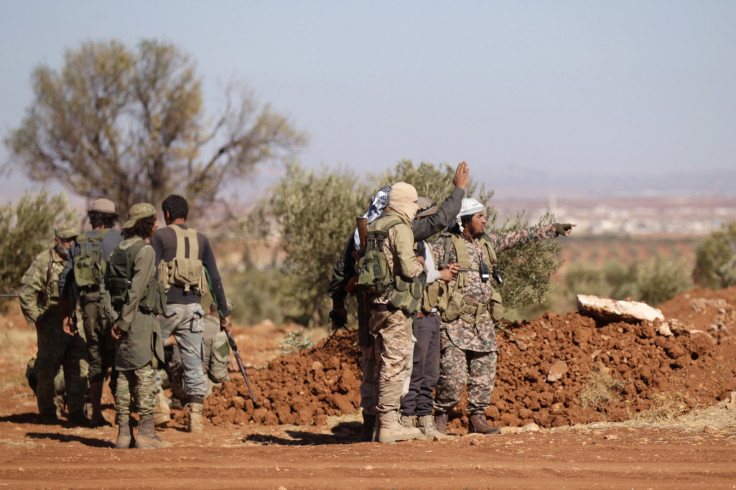Syria ceasefire off to shaky start as Russia and Turkey join forces against Isis
Russian military offered support to Turkish operation in al-Bab for the first time.
Minor violations of the nationwide ceasefire in Syria have not yet shattered the fragile agreement between the government of Bashar al-Assad and rebel groups.
While the truce held in most parts of the war-torn country, the Britain-based Syrian Observatory for Human Rights reported clashes between Assad troops and rebels in the central province of Hama and near the capital, Damascus, in the first few hours following the ceasefire, which came into force at midnight 30 December (10pm GMT on 29 December). No casualties were recorded.
Kenan Rahmani, policy adviser at the activist group The Syria Campaign, reported six instances of ceasefire breaches by pro-Assad forces in areas south of rebel-held Idlib and north of government-controlled Hama and in Daraa, a town in the south of the country, split between government forces and rebel groups.
Assad's forces bombed rebel-held areas such as the Damascus suburb of eastern Ghouta just hours before the ceasefire came into force, with footage shared by the Syrian Civil Defence, also known as White Helmets, seen rescuing a child from the rubble. The rescue group blames Russian and Syrian airstrikes for the deaths of 22 people, including 10 children, in recent bombardments.
The ceasefire brokered by Russia and Turkey is the third to be agreed this year alone, as past truces have collapsed. Announcing the deal on 29 December, Russian President Vladimir Putin admitted the situation remains fragile and implementing the ceasefire will require constant monitoring by the guarantor countries: Turkey for the rebel groups and Iran and Russia for the government and Shia militias.
Turkey opposes the Assad regime, but is also busy fighting terrorists in northern Syria and is worried about the power accrued by the Kurdish People's Protection Units (YPG), who are advancing towards Isis-held Raqqa with the support of the US-led international coalition. Turkey sees the YPG as an extension of the Kurdistan Workers' Party (PKK), listed as a terrorist organisation. Like Isis, the PKK has carried out a number of terror attacks in Turkey in the past two years.
Today's #SyriaCeasefire went into effect one hour ago. I will try to track any violations on this thread.
— Kenan Rahmani كنان (@KenanRahmani) December 29, 2016
The ceasefire does not include UN-designated terrorist groups such as those affiliated with al-Qaeda and the Islamic State (Isis). The Russian airforce carried out three airstrikes against Isis targets near the northern Syrian town of al-Bab, where the Turkish forces have been fighting the militants alongside the Sunni rebel group Free Syrian Army.
This is reportedly the first instance of Russian military support for the Turkish operations in Syria and it is symbolic of the rapprochement between the two countries, who worked hard in the past year to normalise relations that had soured following the downing of a Russian warplane in Turkey in November 2015.

Reuters reported that Turkey, a Nato member country, called on the US-led coalition on 26 December to offer more air support in the al-Bab operations, but this has not yet been forthcoming.
The United States has evidently been sidelined in the recent negotiations for a truce in Syria, although Russian foreign minister Sergey Lavrov said on 29 December that President-elect Donald Trump's administration will be welcome to join the peace process once he takes office.
In the meantime, the State Department welcomed news of a ceasefire. "We hope it will be implemented fully and respected by all parties," US State Department spokesman Mark Toner said.
© Copyright IBTimes 2025. All rights reserved.






















